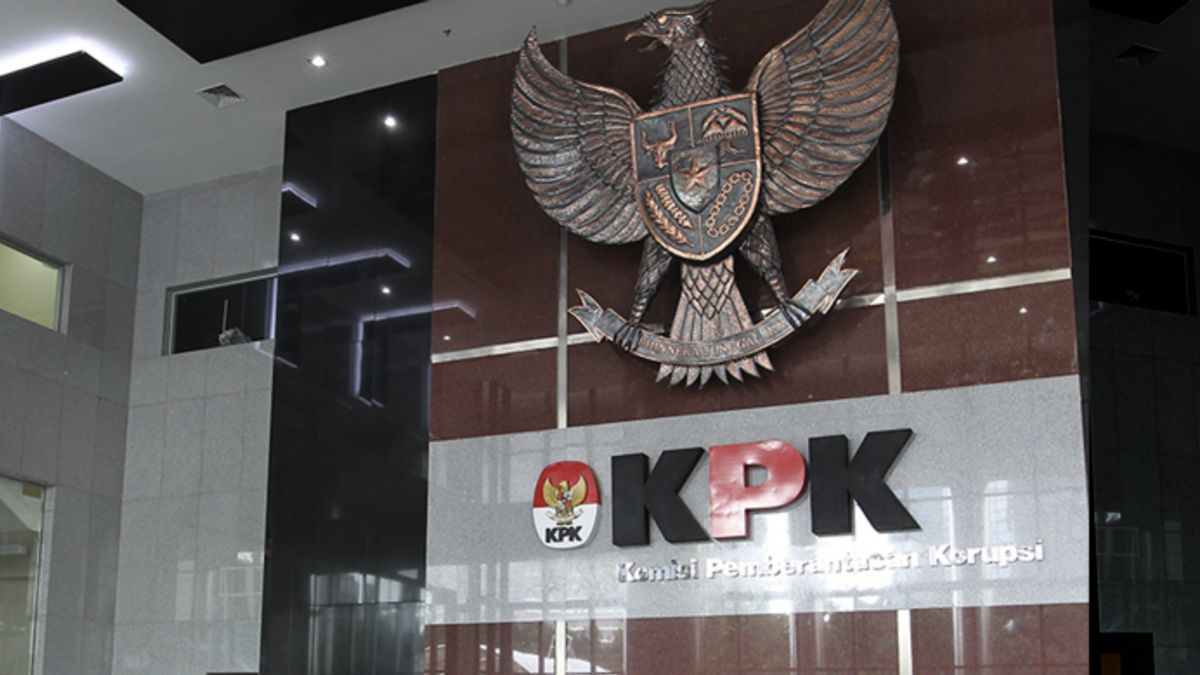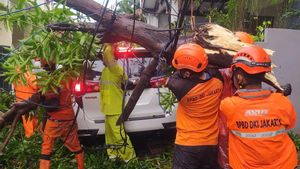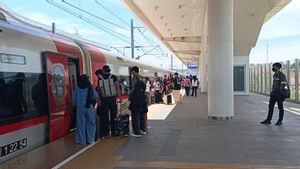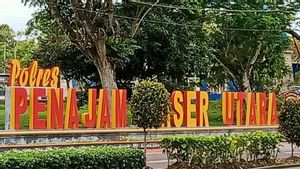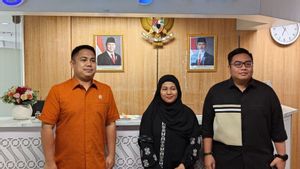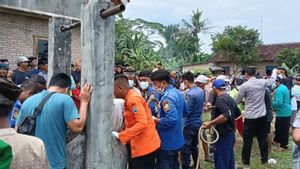JAKARTA - The Corruption Eradication Commission (KPK) oversees the evacuation process of oil palm plantation business permits carried out by the West Papua Provincial Government so that it runs well and does not harm indigenous people.
"This evaluation is a follow-up to the coordination and supervision of the Oil Palm Plantation Sector in West Papua which has been carried out since February 2021," said Head of the KPK Region V Coordination and Supervision Task Force Dian Patria in a written statement, Wednesday, July 13.
In carrying out its coordination and supervision tasks, the KPK will ensure and escort each party to the same goal during the permit control process.
Because from the start, the arrangement of business permits for oil palm plantations in West Papua was intended to improve governance in order to prevent corruption, prevent state financial losses, and protect forest areas.
He said West Papua had declared itself a conservation province and this needed active support from all parties, especially oil palm plantation investors.
"We respect the legal process that applies. But on the other hand, we are obliged to enforce the rules, including the compliance of business actors. Moreover, if the plantation business license does not fulfill its obligations to the state, and even threatens the sustainability of Papua's forests, we must arrange it," he said, according to Antara.
Head of the West Papua Province Horticulture and Plantation Food Crops Service, Yakob S Fonataba, said that from a total of 24 oil palm IUPs evaluated, 16 of them had their permits revoked because they did not meet legal requirements and committed operational violations.
“We recommend that the company's license be revoked because it explicitly states that it will not continue the process of obtaining the permit. Besides that, there are also IUPs that have not yet cleared land and planted oil palms,” he said.
Yakob said that the 16 companies were PT Internusa Kaya Sejahtera, PT Anugerah Sakti Internusa, PT Persada Utama Agromulia, PT Varia Mitra Andalan, PT Inti Kebun Lestari, PT Cipta Papua Plantation, PT Papua Lestari Abadi, PT Sorong Agrosawitindo, PT Bintuni Sawit Makmur , PT Menara Wasior, PT Rimbun Sawit Papua, PT Anugerah Papua Investindo Utama, PT Mitra Sylva Lestari, PT HCW Papua Plantation, PT Permata Putera Mandiri, and PT Pusaka Agro Makmur.
The revocation of this permit is in line with the directives of the President of the Republic of Indonesia on January 6, 2022, in which permits that are not executed, which are not productive, and which are transferred to other parties, as well as those that are not in accordance with their designation and regulations, will be revoked. For West Papua, 17 IUPs have been revoked by the central government and this coincides with 11 IUPs whose permits have been revoked by the West Papuan government in 2021.
"Against the revocation of the IUP, as many as five companies took legal action by filing a lawsuit to the State Administrative Court for the revocation of the permit," he added.
West Papua Provincial Secretary Nathaniel Dominggus Mandacan asked for the support of all parties, including his staff, to face any lawsuits in an effort to enforce the rules.
"Every Regional Apparatus Organization is obliged to assist the regent or related parties to deal with the lawsuit," said Mandacan.
The area of oil palm plantation concessions in West Papua is around 686 thousand hectares. Of this area, only 67 thousand hectares have been planted with oil palm.
Regarding the tax compliance of the Palm Oil IUP, the Head of the Maluku and Papua Regional Tax Office Hery Kuswanto promised to actively collect the company.
“The Tax Office will try its best to collect taxes. For this reason, there needs to be synergy and cross-agency support, both central and regional. We will reconcile tax data with the relevant agencies,” explained Hery.
In addition to non-compliance with tax payments, meeting participants also highlighted the contribution of this sector in developing the West Papua region, because the cooking oil processing industry does not yet exist in West Papua.
The English, Chinese, Japanese, Arabic, and French versions are automatically generated by the AI. So there may still be inaccuracies in translating, please always see Indonesian as our main language. (system supported by DigitalSiber.id)
